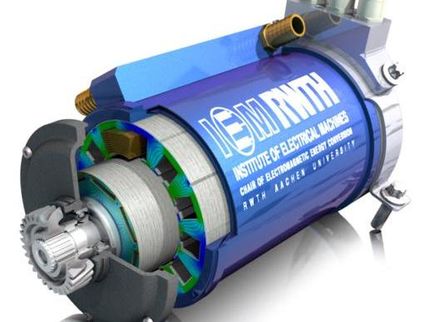Carbon monoxide releasing complexes as new pharmaceutical agents?
Advertisement
toxicity depends on the dosage: carbon monoxide (CO) is known as a toxic gas, responsible for the deadly effect of auto exhaust in closed garages, for example. Paradoxically, the human body itself produces 3 - 6 cm3 of CO daily. Certain diseases cause this quantity to increase, which can be detected on the patient's breath. British researchers working with Brian E. Mann at the University of Sheffield and Roberto Motterlini at the Northwick Park Institute for Medical Research in Harrow have now developed a family of CO-releasing complexes that could turn out to be a new class of medicines.
CO has been demonstrated to play a crucial role as a signal carrier in certain physiological processes, particularly in the cardiovascular system, and is important in various areas of medicine. It thus helps to suppress rejections after organ transplants, and reduces the damage caused by disruption of the blood supply to an organ or tissue (ischemia).
Using CO as a drug thus seems obvious. Mann and Motterlini don't want to use CO as a gas however; they were searching for a "solid" form, a compound that would release CO inside the body. They chose to use metal carbonyl complexes, which consist of several CO molecules and various other ligands grouped around a central metal atom. A number of rubidium and iron complexes proved to be particularly promising. The rubidium complexes very quickly release CO in the presence of myoglobin, a protein involved in oxygen transport in muscles. In trials, they demonstrated a vasodilatory effect and a significant increase in life expectancy in animals after heart transplants. Also noteworthy is a special iron complex that does not transfer CO to myoglobin, yet still acts as a vasodilator. In this case, the CO seems to be released directly into cells, which may make it possible to bring CO directly into tissues.
"Given the well-known toxicity of CO, it seems improbable that it could be medically useful as a gas. However CO-releasing molecules such as our carbonyl complexes could lead to the development of new drugs for the treatment of cardiovascular diseases as well as neurodegenerative and inflammatory diseases," Mann says optimistically. After all, an equally toxic gas, nitrogen monoxide (NO), has also gained great importance in the form of NO-releasing drugs. Northwick Park Hospital and the University of Sheffield have formed a company, hemoCORM, to develop new pharmaceuticals based on this discovery.
Most read news
Topics
Organizations
Other news from the department science

Get the chemical industry in your inbox
By submitting this form you agree that LUMITOS AG will send you the newsletter(s) selected above by email. Your data will not be passed on to third parties. Your data will be stored and processed in accordance with our data protection regulations. LUMITOS may contact you by email for the purpose of advertising or market and opinion surveys. You can revoke your consent at any time without giving reasons to LUMITOS AG, Ernst-Augustin-Str. 2, 12489 Berlin, Germany or by e-mail at revoke@lumitos.com with effect for the future. In addition, each email contains a link to unsubscribe from the corresponding newsletter.






























































